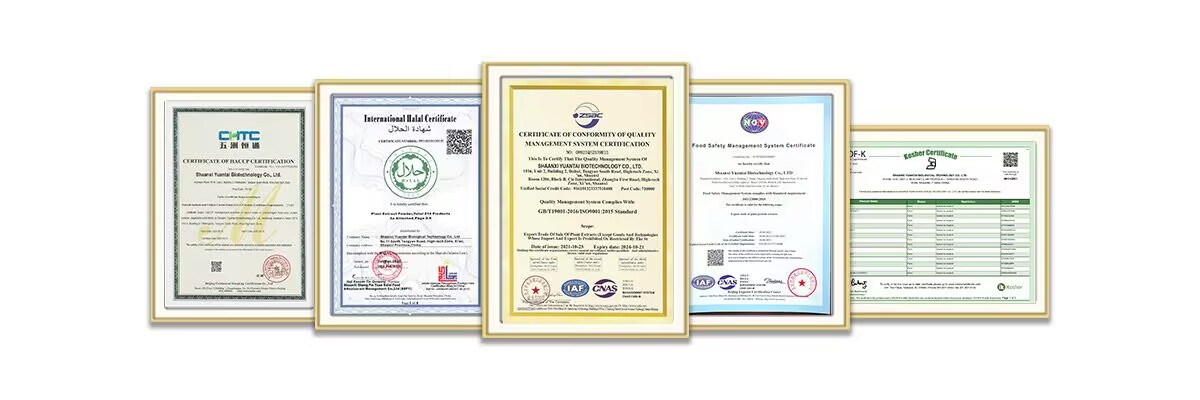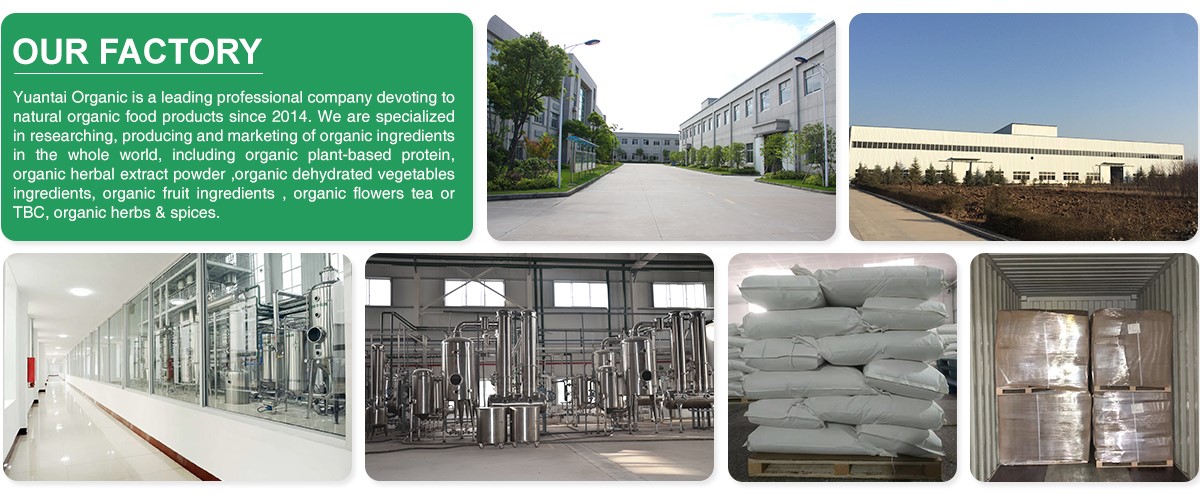grape skin polyphenols
Specifications: 98%
Certification: EU&NOP organic certificate, ISO9001, ISO22000, Kosher, Halal, HACCP
Delivery speed: 1-3 days
Stock: Available
Payment: T/T, VISA, XTransfer, Alipay...
Transportation: DHL.FedEx, TNT, EMS, SF, sea freight, air freight
Certification: EU&NOP organic certificate, ISO9001, ISO22000, Kosher, Halal, HACCP
Delivery speed: 1-3 days
Stock: Available
Payment: T/T, VISA, XTransfer, Alipay...
Transportation: DHL.FedEx, TNT, EMS, SF, sea freight, air freight
Send Inquiry
Download
- Fast Delievery
- Quality Assurance
- 24/7 Customer Service
Product Introduction
What is grape skin polyphenols?

Polyphenols are complex phenolic secondary metabolites in plants with a polyphenol structure. They are mainly found in the skin, roots, leaves, shells and pulp of plants. Polyphenols are a natural antioxidant that has the effect of preventing chronic inflammation, cardiovascular disease and diabetes. Grapes have a high content of polyphenols, which are mainly found in grape seeds and skins, and very little in the pulp, and have good antioxidant effects.
Grape skin polyphenols are extracted from grapes, which are rich in polyphenols. Among them, grape seeds and grape skins have the highest content of polyphenols and have good antioxidant effects. Grapes contain a considerable amount of polyphenols, so their extracts have obvious antioxidant effects; after fermentation into wine, the polyphenol content is higher, the composition is more stable, and the antioxidant capacity is greatly improved. There are more than 50 polyphenol compounds in red wine, which is the substance with the most types of antioxidants and the widest antioxidant range discovered so far. Antioxidants have strong antioxidant properties and can help prevent the occurrence of coronary heart disease and atherosclerosis by inhibiting the oxidation of low-density lipoprotein (LDL). The change in the properties of LDL due to the oxidation of polyunsaturated fatty acids is an important factor in promoting atherosclerosis. Oxidation affects the apolipoprotein of LDL, changes the physiological, chemical and biological properties of LDL, so the oxidized LDL loses the properties of being specifically recognized and cannot undergo normal catabolism.
Efficacy:
1. Antioxidant effect: It is a powerful antioxidant that can neutralize free radicals in the body, protect cells from oxidative damage, reduce the damage of oxidative stress to the body, and help delay the aging process;
2. Anti-inflammatory effect: It has anti-inflammatory properties and can inhibit the production of multiple inflammatory factors and reduce inflammatory reactions. Inflammation is closely related to a series of diseases such as arthritis, enteritis, heart disease, etc. Its anti-inflammatory effect can help prevent and manage these inflammation-related diseases.
3. Cardiovascular protection: It can inhibit the aggregation of cholesterol in the body, improve heart function, promote blood circulation, and prevent the occurrence of problems such as thrombosis. It has the property of dilating blood vessels, which can promote blood vessel relaxation and thus lower blood pressure. In addition, it can prevent the oxidation of low-density lipoprotein (LDL), which helps prevent the occurrence of coronary heart disease and atherosclerosis.
4. Whitening: It can downregulate the protein expression level and enzyme activity of melanin tyrosinase, effectively preventing the skin from being tanned. At the same time, it can also act on free radicals, prevent metabolic cells from being oxidized, repair damaged cells, restore and accelerate metabolism, and quickly excrete accumulated melanin from the body.
5. Anti-aging effect: It has the ability to balance free radicals, effectively helps the skin resist the invasion of oxidative factors, and provides protection for the skin. At the same time, it can also repair the human collagen fiber and elastic fiber network, maintain skin vitality, prevent skin sagging and wrinkles, and improve skin aging.
6. Promote digestion: Grape skin contains a large amount of cellulose, which can effectively promote gastrointestinal motility and help intestinal health.
Benefits:
Polyphenols from grapes can be considered as ideal candidates to offset the multifactorial nature of AD. Grapes and their different parts have excellent nutritional and medicinal value, which may be attributed to their powerful antioxidant activity due to their high polyphenol content. For example, administration of extracts rich in proanthocyanidins showed anti-inflammatory, antioxidant, anti-apoptotic, anti-fibrotic and vasodilatory effects. Polyphenolic compounds have attracted great interest in pharmaceutical supplements and nutritional interventions; they are composed of a variety of polyphenols including anthocyanidins, flavonoids, and organic acids such as malic acid, oxalic acid, tartaric acid, citric acid, fumaric acid, and succinic acid. These polyphenols have excellent antioxidant potential and have been suggested for the treatment of neurodegenerative diseases caused by oxidative stress.
1. Anti-neurodegenerative properties
Grape-derived polyphenols targeting the brain have good anti-neurodegenerative properties. In the brain, most grape skin polyphenols or at least their metabolites (such as resveratrol) can cross the blood-brain barrier at sufficient concentrations to evoke neuroprotection and enhance memory by inhibiting acetylcholinesterase activity. Resveratrol is also a member of the antimicrobial and low molecular weight phytoalexins, which are defense mechanisms synthesized by dendritic cells after pathogenic attacks and are natural plant antibiotics.
2. Antioxidant activity
It has important antioxidant activity in neural tissue, can react with free radicals and catalytic metal ions, then terminate the chain reaction by removing free radical intermediates, and be oxidized by inhibiting other oxidation reactions. In addition, it can counteract the enzymatic changes induced by H2O2. The administration of grape leaf polyphenol extract to AD-induced rats showed significant antioxidant potential and supported the therapeutic efficiency of this polyphenol extract for AD. It shows that polyphenols in grape leaves weaken neurotoxicity through antioxidant and anti-apoptotic effects.
The ability of antioxidants is closely related to immunomodulatory and anti-inflammatory effects. Polyphenols can alleviate the side effects of oxidative stress generated during immune response, thereby promoting immunogenic function. There are other indirect mechanisms, such as inhibition of redox-sensitive transcription factors such as nuclear factor and activator protein, upregulation of antioxidant enzymes and inhibition of prooxidant enzymes. Proanthocyanidins show immunomodulatory effects in inflammatory diseases.
3. Neuroprotective potential
Including reducing nerve damage caused by neuroinflammation, attenuating the deposition of NFT and Aβ plaques, and activating signaling pathways that are critical for controlling synapses. In addition, polyphenols have a positive impact on brain health by affecting peripheral and cerebral blood flow, proving their ability to induce vascular effects and support the growth of new neurons in the hippocampus. Higher microvascular density is associated with increased cerebral blood flow, which may induce physical activity by directly increasing the supply of glucose and oxygen in the brain.Benefits to the skin
1. Fight against the invasion of reactive oxygen species and maintain the integrity of cell membranes and skin structures. It can provide the moisture needed by the skin, increase the skin's moisturizing ability, and help relieve psoriasis symptoms.
2. Inhibit collagenase and other types of degrading enzymes to resist skin aging. It can neutralize free radicals and reduce the damage of oxidative stress to skin cells, thereby delaying the skin aging process.
3. Reduce the inflammatory response caused by skin irritation, which has certain benefits for inflammatory skin diseases.
4. Inhibit tyrosinase activity, reduce melanin production, and make the skin brighter. It can act on free radicals, prevent metabolic cells from being oxidized, repair damaged cells, restore and accelerate metabolism, and quickly excrete accumulated melanin from the body.
5. Maintain vascular tension, prevent microvascular varicose veins, promote the metabolism of fat and carbohydrates, and eliminate the phenomenon of orange peel tissue.
From this, it can be seen that using grape polyphenols to maintain skin has many benefits. It can not only play a complete antioxidant effect, but also reduce the formation of melanin to achieve the effect of whitening. At the same time, it can strongly protect collagen and elastic fibers to maintain the firmness and elasticity of the skin. In this way, the skin will naturally appear young and healthy.
Studies have reported that phenolic substances extracted from grape skin have significant antioxidant and anti-inflammatory activities both in vitro and in vivo. The main components of grape skin phenolic substances are phenolic acids, proanthocyanidins, anthocyanidins, flavonoids, etc. A large number of studies have confirmed that the biological activity of total phenolic extracts is much higher than that of single phenolic components.
Grape skin polyphenolshave a regulatory effect on lipid accumulation in vitro. It is possible to be used as a promising functional food source to reduce lipid accumulation and improve liver function.
Formulation

Capusle FormulationTablet Formulation

Solid Drink Formula

Certificates
YTBIO is developing in an all-round way. We have our own factory, quality inspection and R&D team. We are committed to providing customers with the best quality grape skin polyphenols and services. It is our original intention to let every consumer enjoy high-quality and healthy products. If you have any needs or questions about our products, please feel free to contact us and we will reply you as soon as possible.

Packaging and Shipping


Our Company and Factory

_1737093401309.png)

